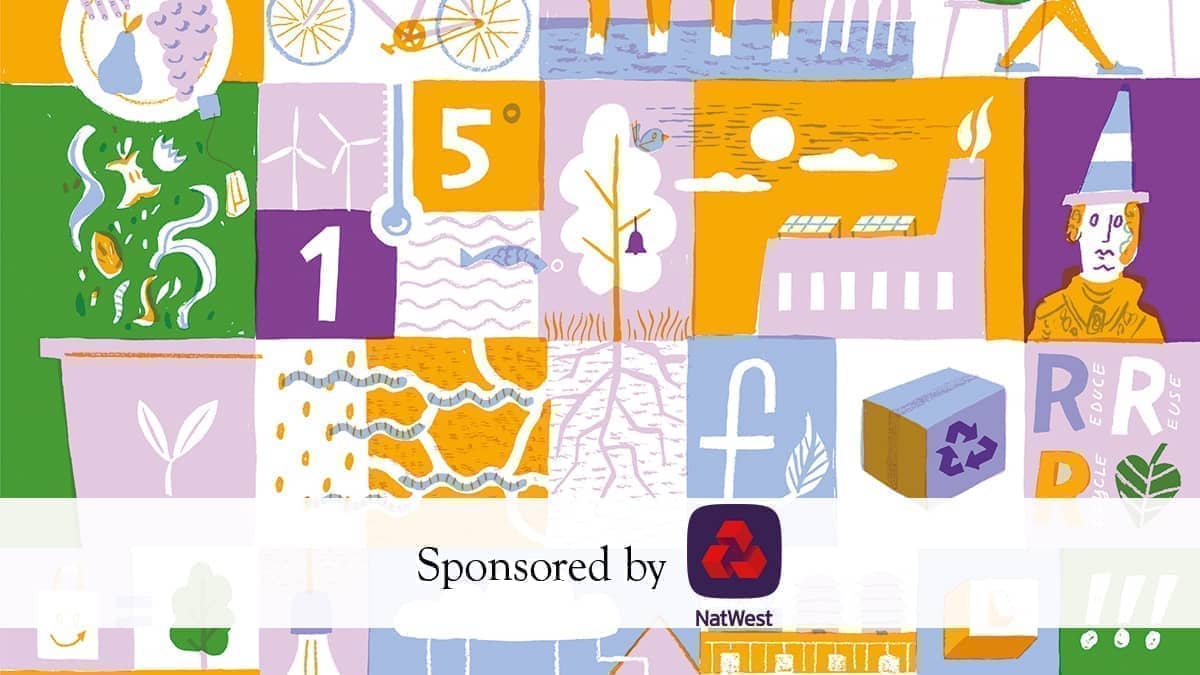In February, NatWest Group published its most extensive climate-related disclosure to date. Key highlights include:
- Providing £17.5 billion of climate and sustainability financing last year – aiming towards £100 billion by 2025.
- Launching green loans and green asset financing to provide fee-free lending for sustainable projects and investment.
- Collaborating with carbon tracking expert Cogo and becoming the first European bank to provide both personal and business customers with an estimated carbon footprint associated with their monthly spend.
Reflecting on the bank’s climate progress and its vision for a greener future, NatWest’s head of climate change, James Close, said: ‘As the UK’s largest lender to business, we recognise that financing is a key enabler in the pursuit of net zero.
‘Through the £17.5 billion in support we gave to our customers last year, we’re helping them deliver real change. From helping families purchase energy efficient homes to funding businesses creating jobs, we are helping to speed up the UK’s transition to net-zero.’
He added: ‘Addressing climate change is a monumental challenge. While finance is key to a successful transition, clear, long-term government climate commitments continue to ensure investor confidence to help accelerate the pace of progress.
‘[NatWest’s] latest springboard to sustainability report found SMEs (small and medium-sized businesses) could create up to 130,000 new jobs, produce around 30,000 new businesses and benefit from an estimated £160 billion opportunity for the UK economy. We want to help our customers realise this potential.
‘We’re approaching a tipping point. Previous policy discussions have focused on the pain in making the transition from fossil fuels to higher-cost renewables. However, this narrative is shifting, with a greater belief that you can swap fossil fuel energy for lower cost, cleaner and more productive energy while benefitting the economy.
‘This can be the 21st century growth story. While we must manage the transition thoughtfully, investment in green initiatives is increasingly in the shared global interest. The alternative is large-scale migration and deep uncertainty in both capital and financial markets, which won’t support sustainable growth.
‘At the NatWest Group we have a responsibility to change our practices. Alongside supporting families and businesses to reduce their environmental impact, we’re ending the most harmful activity by aligning our portfolio with the Paris Agreement.’
Close added: ‘This year, we will continue to put customers at the heart of our climate approach while supporting businesses looking to transition and upskilling personnel with practical tools and financing.
‘Driving forward, our ultimate ambition is to be the leading UK bank addressing climate change, halving the climate impact of our financing by 2030 – and becoming net zero by 2050.
‘We need to constantly remind ourselves we haven’t got time to waste.’
To find out more about the support available from NatWest Group to help businesses go and grow greener, visit www.natwest.com/climatehub
This article is free to read
To unlock more articles, subscribe to get 3 months of unlimited access for just $5






Comments
Join the debate for just £1 a month
Be part of the conversation with other Spectator readers by getting your first three months for £3.
UNLOCK ACCESS Just £1 a monthAlready a subscriber? Log in